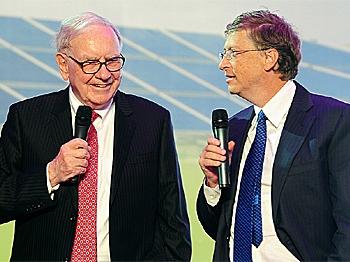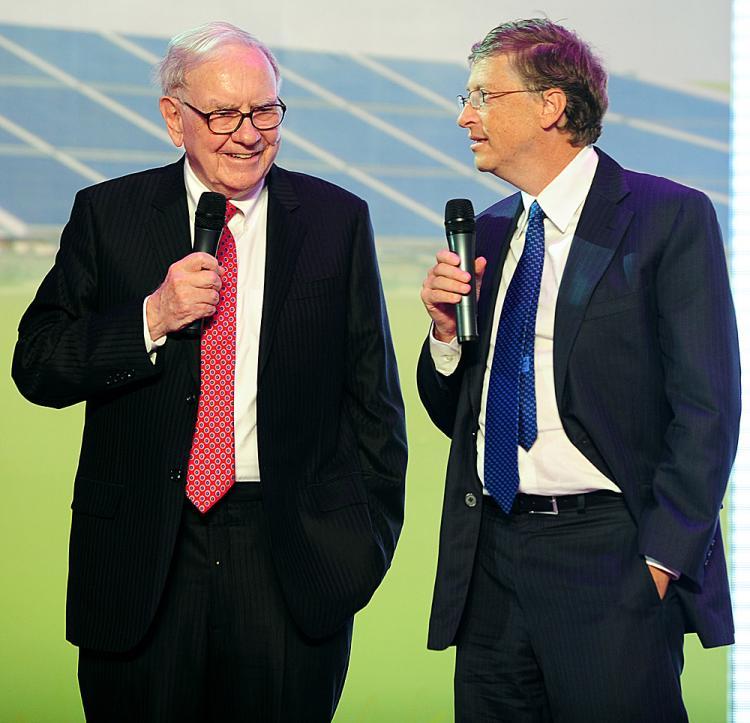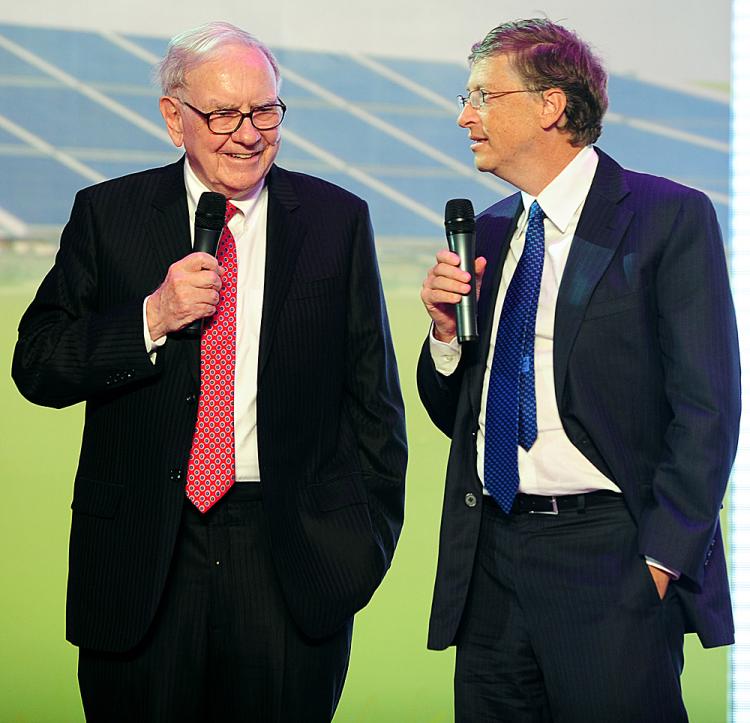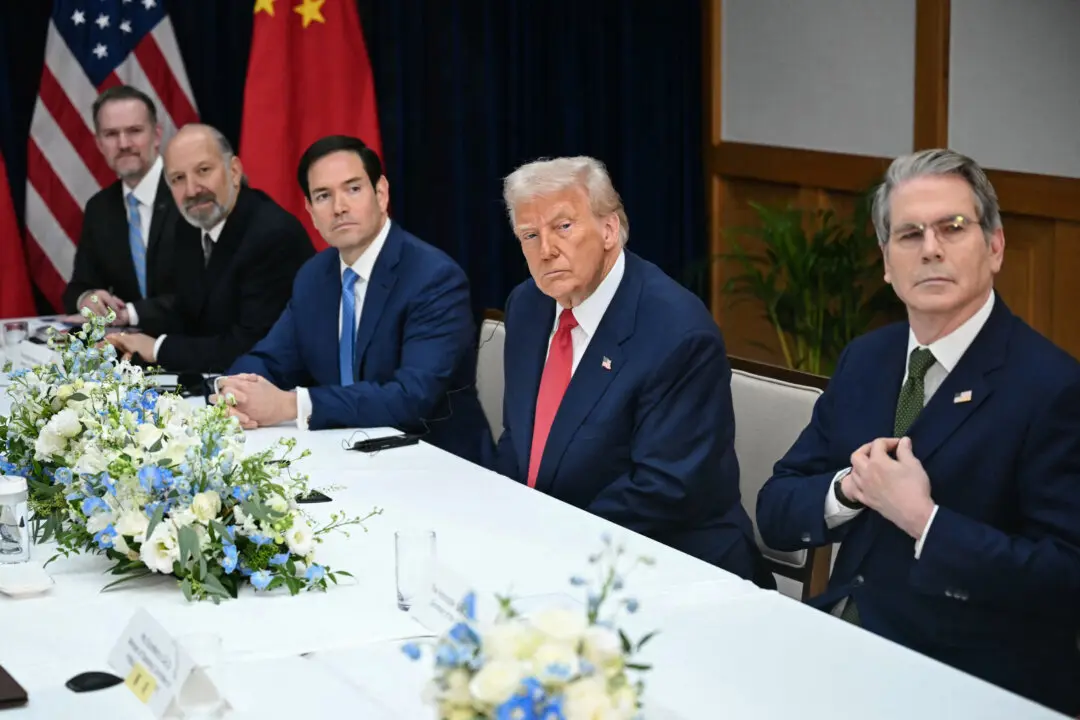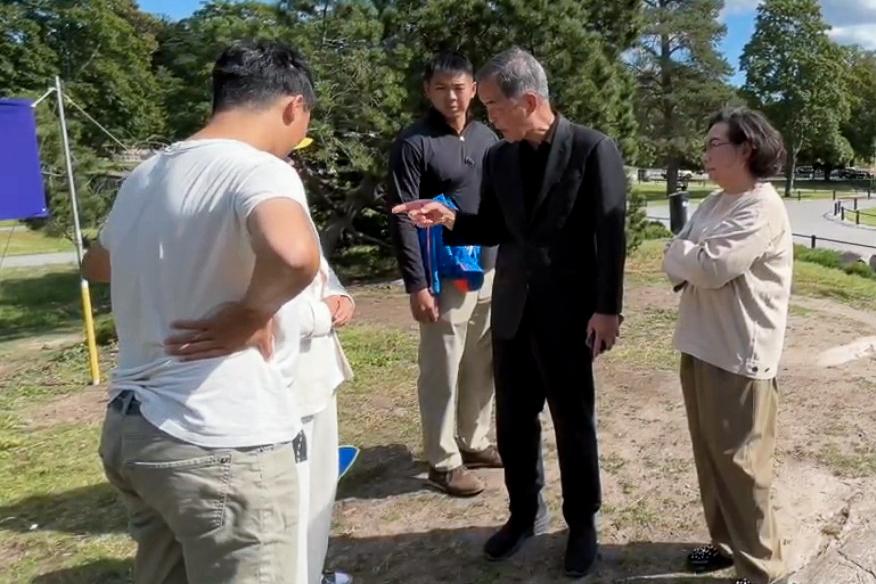Bill Gates and Warren Buffet must have been puzzled when they flew back from China, having failed to solicit donations to charity from China’s wealthiest.
Prior to going to China, Gates, the second-richest man on the planet, and Buffet, the third-richest, had successfully convinced 40 billionaires to pledge at least half their net worth to charity in the United States. Why don’t Chinese billionaires donate to charity in the same way as their U.S. counterparts?
Charity is not new to the Chinese—it can be traced back 2,000 years. In the Han Dynasty and the first 200 years of the Tang Dynasty, charity was mostly practiced by Buddhist and Taoist temples, but in A.D. 841, Emperor Wu-Tsung ordered the destruction of the Buddhist temples.
During the Yuan (Mongol occupation) and Song dynasties and subsequent dynasties, charity was mostly controlled by the imperial government. However, after the Opium War (1839–1842), the imperial treasury couldn’t afford charity, and private charities played an increasingly important role in society.
After the extreme drought of 1876, modern, private charity was born. At the time, the richest Chinese who made their fortune during the Westernization Movement of the late Qing Dynasty became the most active in private charity. After the collapse of the Qing Dynasty, private charity matured, with the help of Western missionaries’ ideas and practices.
For 1,000 years, the local rich always contributed to local education and road and bridge building, with the belief that contributions would accumulate virtue for the afterlife or the next reincarnation. The charity organization established during the 1876 drought also carried the mission of moral education. Charity recipients were expected to conform to traditional morality. Other than the imperial-dominated period, religion always played the most important role in Chinese history.
Unfortunately, this whole story ended in 1949 when the Chinese Communist Party (CCP) took over mainland China. Missionary-related charity was criticized as the “cultural invasion of Western Imperialism,” and the contributors to private charities were mostly considered enemies of the communist revolution. Except for the lucky ones who went to Taiwan with the National Army, they were either killed or imprisoned. The Communist Party and its leaders were to be the only saviors of the Chinese people. Nobody should share the “glory.”
The economic reform that started 30 years ago is not strange to many Chinese. It just borrowed some ideas from the well-established capitalism of the West. Actually, the reform just turned the clock back 30 years to the point before the CCP took over China. This economic reform has been summarized in two phrases: “untying the hands” (sometimes translated as deregulation) and “crossing the river by groping for the stones underfoot.”
But the obstacles to restoring charity in China are much more complicated than those to reviving capitalism.
In ancient China, when the imperial government fully controlled charity, especially in the Song and Yuan dynasties, or mostly controlled charity, such as in the Ming and Qing dynasties, the main concern of the rulers was that the emperors should take all the credit for the charity. Nobody else was allowed to take even partial credit.
On the other hand, the emperors were fully responsible for the money used on charity. This was called “infinite royal graciousness” in China. Only when the Qing Dynasty could no longer afford charity did it allow private charity to take over some of the work.
Prior to going to China, Gates, the second-richest man on the planet, and Buffet, the third-richest, had successfully convinced 40 billionaires to pledge at least half their net worth to charity in the United States. Why don’t Chinese billionaires donate to charity in the same way as their U.S. counterparts?
Religious Roots of Charity
Charity is not new to the Chinese—it can be traced back 2,000 years. In the Han Dynasty and the first 200 years of the Tang Dynasty, charity was mostly practiced by Buddhist and Taoist temples, but in A.D. 841, Emperor Wu-Tsung ordered the destruction of the Buddhist temples.
During the Yuan (Mongol occupation) and Song dynasties and subsequent dynasties, charity was mostly controlled by the imperial government. However, after the Opium War (1839–1842), the imperial treasury couldn’t afford charity, and private charities played an increasingly important role in society.
After the extreme drought of 1876, modern, private charity was born. At the time, the richest Chinese who made their fortune during the Westernization Movement of the late Qing Dynasty became the most active in private charity. After the collapse of the Qing Dynasty, private charity matured, with the help of Western missionaries’ ideas and practices.
For 1,000 years, the local rich always contributed to local education and road and bridge building, with the belief that contributions would accumulate virtue for the afterlife or the next reincarnation. The charity organization established during the 1876 drought also carried the mission of moral education. Charity recipients were expected to conform to traditional morality. Other than the imperial-dominated period, religion always played the most important role in Chinese history.
Unfortunately, this whole story ended in 1949 when the Chinese Communist Party (CCP) took over mainland China. Missionary-related charity was criticized as the “cultural invasion of Western Imperialism,” and the contributors to private charities were mostly considered enemies of the communist revolution. Except for the lucky ones who went to Taiwan with the National Army, they were either killed or imprisoned. The Communist Party and its leaders were to be the only saviors of the Chinese people. Nobody should share the “glory.”
The economic reform that started 30 years ago is not strange to many Chinese. It just borrowed some ideas from the well-established capitalism of the West. Actually, the reform just turned the clock back 30 years to the point before the CCP took over China. This economic reform has been summarized in two phrases: “untying the hands” (sometimes translated as deregulation) and “crossing the river by groping for the stones underfoot.”
But the obstacles to restoring charity in China are much more complicated than those to reviving capitalism.
Who Contributes, Who Takes Credit
In ancient China, when the imperial government fully controlled charity, especially in the Song and Yuan dynasties, or mostly controlled charity, such as in the Ming and Qing dynasties, the main concern of the rulers was that the emperors should take all the credit for the charity. Nobody else was allowed to take even partial credit.
On the other hand, the emperors were fully responsible for the money used on charity. This was called “infinite royal graciousness” in China. Only when the Qing Dynasty could no longer afford charity did it allow private charity to take over some of the work.
